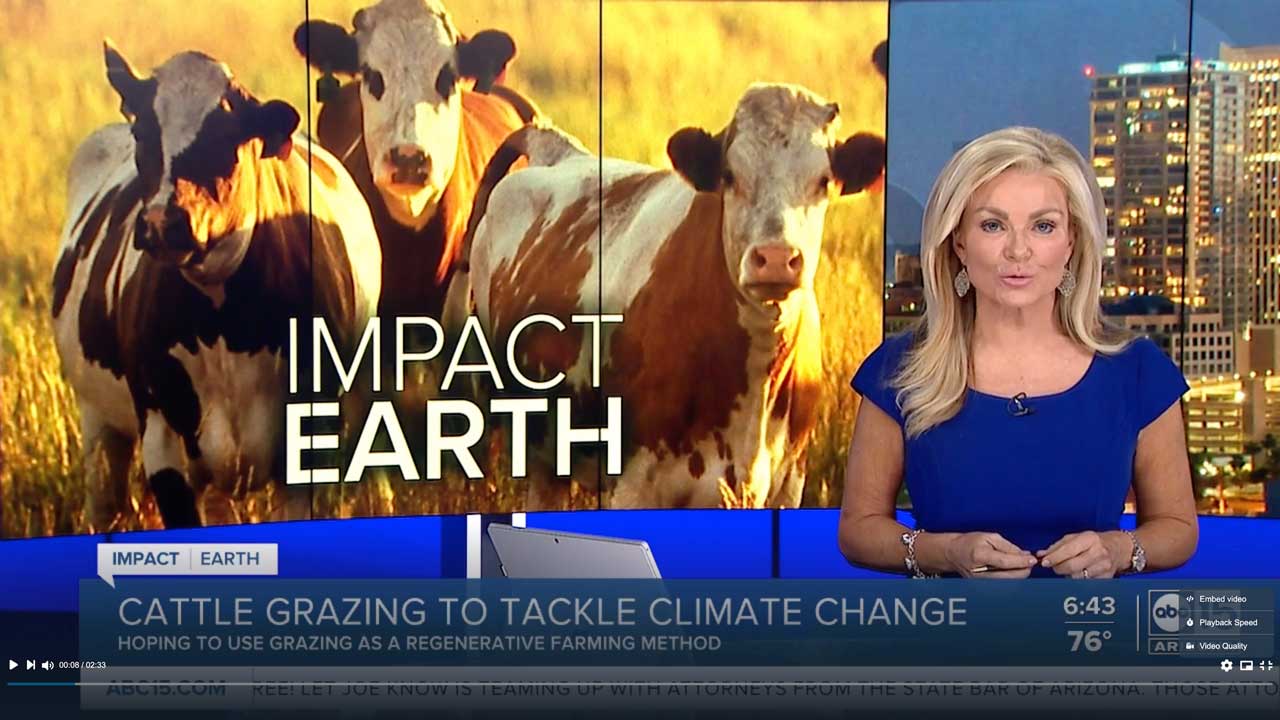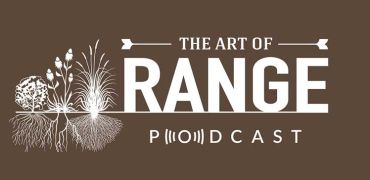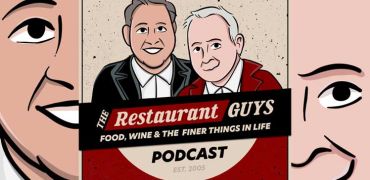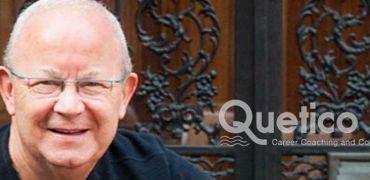Cows a solution for climate change: ASU professor wants to share possible solutions
PUBLISHED 08 November 2023
SOURCE: Ashlee DeMartino | ABC15
PHOENIX — Impacting Earth one cow and one pasture at a time.
Watch the Video / Source Article
“It’s just nature. No one’s made anything new here, it’s not a new technology it’s just a method. Hey look at this, bison are great land managers let's copy them,” said Peter Byck, ASU professor of practice in Journalism and Sustainability and documentary filmmaker.
Byck and his team of scientists are reintroducing the method of adaptive farming to farmers across the U.S.
“Back in 2006, when I was looking for solutions to climate change the soils kept coming up,” said Byck.
Soils are both a problem and a solution. Byck focused on who was treating the soil.
“It was the grazers, the ranchers who were actually doing things that looked a lot faster with a lot more impact,” he said.
 Ashlee DeMartino from ABC Arizona interviews Peter Byck
Ashlee DeMartino from ABC Arizona interviews Peter Byck
His focus on cattle farmers led to his first project that produced the film “Soil Carbon Cowboys” in 2014.
That led to a $10 million grant for his research team to create their latest work “Roots So Deep”.
“We are studying a type of grazing called adaptive grazing,” said Byck.
This is where cattle hit a small area of the pasture, eat half of the plants, stomp down the rest to cover the soil, and move on.
"Then all of those plants just want to grow quickly sucking down carbon, feeding the microbes in the soils. They are sucking down an enormous amount of carbon [from] those plants which is pulling carbon out of the atmosphere which is one of the main reasons climate change is happening," said Byck.
His research shows that because so much carbon is being dragged down it is counteracting the methane (from cows burps) and nitrous oxide gases on the farm. In turn, it causes greenhouse gases to sink and slows the rate of climate change by creating a cooling effect.
“Then that land rests and it’s that rest period where everything regrows and when it regrows it brings down so much carbon and as it does so it’s cooling that farm and if enough farmers do it, it could cool the planet,” said Byck.
But that’s if enough farmers do it.
“One farmer isn’t going to change the planet and not nearly enough are doing this type of method because not enough know it exists,” said Byck.
That is why Byck made his movie and is taking it on the road to one small town after another to try and create a movement of change one farm at a time.
“We really show the personal side of farming, of science and then we have real science to back it all up. It’s one method that creates a lot of solutions,” said Byck.


